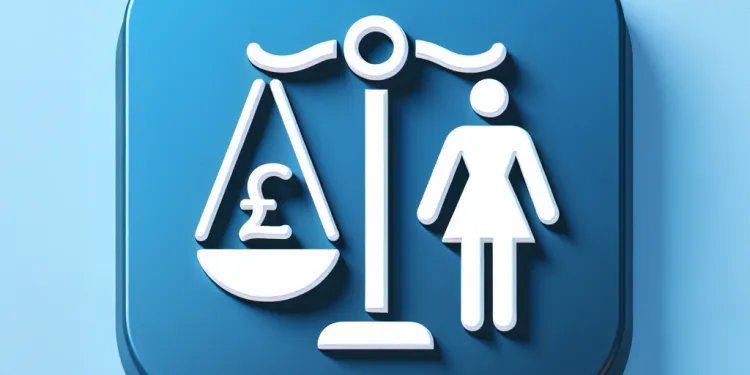
Find Help
More Items From Ergsy search
-

Does Ozempic have an impact on kidney function?
Relevance: 100%
-

What problems is Ozempic known to cause?
Relevance: 46%
-

Are there any serious risks associated with Ozempic?
Relevance: 43%
-

Is Ozempic safe for everyone to use?
Relevance: 42%
-

What is Ozempic?
Relevance: 42%
-

Are there any long-term effects of using Ozempic?
Relevance: 40%
-

Can Ozempic cause serious side effects?
Relevance: 40%
-

What populations should use caution when taking Ozempic?
Relevance: 39%
-
What happens if I overdose on Ozempic?
Relevance: 39%
-

What is my risk of kidney failure with CKD (chronic kidney disease) | UHL NHS Trust
Relevance: 37%
-

Living with early stage kidney disease
Relevance: 36%
-

What should I discuss with my doctor before starting Ozempic?
Relevance: 36%
-

Having a kidney transplant
Relevance: 36%
-

What causes chronic kidney disease?
Relevance: 35%
-

What is Ozempic?
Relevance: 35%
-

What should I discuss with my doctor before starting Ozempic?
Relevance: 35%
-

Chronic kidney disease: What are the treatments?
Relevance: 35%
-

Can non-diabetic individuals use Ozempic for weight loss?
Relevance: 35%
-

Who should not take Ozempic?
Relevance: 35%
-

What are the side effects of Ozempic?
Relevance: 35%
-

What are kidney stones?
Relevance: 34%
-

Is Ozempic suitable for type 1 diabetes?
Relevance: 34%
-

How does Ozempic work?
Relevance: 34%
-

Can Ozempic be taken with food?
Relevance: 34%
-

Is nausea a frequent side effect of Ozempic?
Relevance: 34%
-

Can Ozempic be used for weight loss?
Relevance: 34%
-

Matthew's Story: Kidney Transplant - Part 1
Relevance: 33%
-

Can Ozempic affect vision?
Relevance: 33%
-

Patient Stories - Having a kidney transplant
Relevance: 33%
-

Is Ozempic a form of insulin?
Relevance: 32%
-

Do I need a prescription for Ozempic?
Relevance: 32%
-

Can Ozempic cause gallbladder problems?
Relevance: 32%
-

Can Ozempic lead to dehydration?
Relevance: 32%
-

How is Ozempic administered?
Relevance: 32%
-

How does Ozempic help with weight loss?
Relevance: 32%
-

How is Ozempic administered?
Relevance: 32%
-

What should I eat to help with chronic kidney disease?
Relevance: 31%
-

How should Ozempic be stored?
Relevance: 31%
-

Does insurance cover Ozempic?
Relevance: 31%
-

Can I take Ozempic with other diabetes medications?
Relevance: 31%
Introduction
Ozempic, known generically as semaglutide, is a medication primarily used for the management of type 2 diabetes. Its primary function is to improve blood sugar levels by mimicking the GLP-1 hormone, which increases insulin secretion. This medication has gained popularity due to its efficacy in controlling diabetes and its potential for aiding weight loss. However, like any medication, it is essential to understand all possible side effects, including its impact on kidney function.
Mechanism of Action
Ozempic works by activating the GLP-1 receptor, which increases the release of insulin and decreases the secretion of glucagon, ultimately reducing blood sugar levels. Additionally, it slows gastric emptying and increases the sensation of fullness after meals. These effects contribute to better glycaemic control and potential weight loss in patients with type 2 diabetes.
Impact on Kidney Function
Understanding the impact of Ozempic on kidney function is crucial for patients with pre-existing kidney conditions. Some studies suggest that GLP-1 receptor agonists like Ozempic have a renal protective role, as they can lead to improvements in cardiovascular outcomes and potential benefits in reducing albuminuria, a marker of kidney damage. However, the impact on glomerular filtration rate (GFR) remains minimal, indicating that caution is advised in advanced chronic kidney disease.
Clinical Evidence
Clinical evidence supports the cautious use of Ozempic in patients with type 2 diabetes who also suffer from kidney issues. The SUSTAIN-6 trial highlighted the cardiovascular benefits of semaglutide, although precise renal outcomes required further investigation. Subsequent studies indicated that while Ozempic might help reduce the risk of developing nephropathy, the precise impact on the kidney’s filtration ability is less pronounced. As with any medication, individual responses can vary, necessitating regular monitoring of kidney function throughout treatment.
Guidelines for Use
In the UK, Ozempic is prescribed following a thorough assessment of its benefits and potential risks. Patients with a history of kidney disease are advised to have periodic kidney function tests to monitor any changes. Healthcare providers typically initiate treatment with the lowest possible dose, adjusting as necessary, while carefully observing any changes in kidney function or overall health.
Conclusion
Ozempic offers significant benefits for individuals with type 2 diabetes, particularly those struggling with weight management. While it presents potential renal protective properties, patients with existing kidney concerns should be monitored closely. Ongoing research continues to clarify the extent of Ozempic’s impact on kidney health, ensuring informed and safe treatment choices for patients across the UK.
Introduction
Ozempic is a medicine that helps people with type 2 diabetes. Its main job is to make blood sugar levels better. It does this by acting like a hormone called GLP-1, which helps your body make more insulin. Ozempic is popular because it helps control diabetes and may also help people lose weight. But, like all medicines, it's important to know about the side effects, like how it might affect your kidneys.
How It Works
Ozempic helps your body release more insulin and stops another chemical, glucagon, from being made too much. This helps keep your blood sugar levels low. It also makes your stomach empty food slower and makes you feel full after eating. This helps people with type 2 diabetes keep their blood sugar levels steady and might help with losing weight.
Effect on Kidneys
It's important to know how Ozempic affects the kidneys, especially if someone already has kidney problems. Some studies say Ozempic might help protect the kidneys and improve heart health. It might also reduce signs of kidney damage. But, it doesn’t change much how well the kidneys filter blood, so people with serious kidney disease need to be careful.
What Studies Show
Studies show that Ozempic can be used carefully in people with type 2 diabetes who also have kidney problems. One big study, SUSTAIN-6, showed it’s good for the heart, but we need more information about how it affects kidneys. Later studies showed Ozempic might lower the risk of kidney problems getting worse, but it doesn’t change much how the kidneys clean the blood. Everyone reacts differently to medicine, so regular kidney checks are important.
Using Ozempic Safely
In the UK, Ozempic is given after checking its benefits and risks. People with kidney disease need regular tests to watch for changes. Doctors usually start with a small dose and change it if needed, while watching the kidneys and overall health carefully.
Conclusion
Ozempic helps people with type 2 diabetes, especially if they need help managing their weight. It might also protect the kidneys, but people with kidney concerns should have regular check-ups. More research is happening to better understand how Ozempic affects kidney health and to help make safe treatment choices for everyone in the UK.
Frequently Asked Questions
What is Ozempic?
Ozempic is a medication used to treat type 2 diabetes. It helps to control blood sugar levels.
Does Ozempic have an impact on kidney function?
Ozempic is not specifically known to have a direct impact on kidney function, but all diabetes medications should be used with caution in patients with kidney disease.
Can Ozempic cause kidney damage?
There is no strong evidence suggesting that Ozempic causes kidney damage, but monitoring kidney function is important in diabetes management.
Should patients with kidney disease use Ozempic?
Patients with kidney disease should consult with their healthcare provider before using Ozempic to ensure it is safe for them.
How does diabetes affect kidney function?
Diabetes can damage the blood vessels in the kidneys, leading to diabetic nephropathy, which is why managing blood sugar levels is crucial.
Is it safe to use Ozempic with reduced kidney function?
Dose adjustments may be necessary for patients with reduced kidney function, and a doctor's advice is essential.
What should I monitor if I'm on Ozempic with kidney issues?
You should monitor blood sugar levels regularly and have your kidney function checked as directed by your healthcare provider.
Can Ozempic improve kidney function?
There is no evidence that Ozempic improves kidney function, but controlling diabetes can help prevent further kidney damage.
What are the side effects of Ozempic related to kidney function?
While not common, some side effects affecting the kidneys may include changes in urine or swelling; consult your doctor if experienced.
Does Ozempic require dose adjustment in CKD?
Dose adjustments might be required in chronic kidney disease (CKD), depending on the severity. Consult your healthcare professional.
How does Ozempic help manage diabetes?
Ozempic mimics the hormone GLP-1, which increases insulin production and decreases glucagon release, helping to lower blood sugar.
Can Ozempic consumption increase creatinine levels?
There is no direct evidence that Ozempic increases creatinine levels, a marker of kidney function, but monitoring is advised.
Is it necessary to perform regular kidney tests while using Ozempic?
Yes, regular kidney function tests may be necessary to ensure the kidneys are functioning well while on diabetic medications like Ozempic.
What other medications could affect kidney function?
Non-steroidal anti-inflammatory drugs (NSAIDs), certain antibiotics, and diuretics can impact kidney function.
Can Ozempic cause protein in urine?
There have been no direct links between Ozempic and proteinuria, but consult with a healthcare provider if you notice changes.
What precautions should be taken if on Ozempic with kidney concerns?
Close monitoring of kidney function and consulting with a healthcare provider before starting Ozempic is advised.
Is Ozempic contraindicated in patients with kidney failure?
Ozempic may not be recommended for patients with severe kidney failure. Always consult with a healthcare professional.
How often should kidney function be monitored on Ozempic?
Frequency of monitoring depends on individual health conditions; follow your healthcare provider's advice.
Are there any cases of renal impairment due to Ozempic?
There are limited cases of renal impairment directly linked to Ozempic, but any unusual symptoms should be reported to a doctor.
Does Ozempic interact with medications affecting kidneys?
Ozempic can interact with other medications; inform your doctor about all drugs you are taking, especially those affecting the kidneys.
What is Ozempic?
Ozempic is a medicine. It helps people with a condition called diabetes. This means their blood sugar levels are too high.
Remember to talk to your doctor before taking any medicine. They can help you understand more about it.
If you find reading hard, try using these tools:
- Audio books or apps that read text out loud.
- Ask someone like a friend or family member to read with you.
These things can help make reading easier.
Ozempic is a medicine. It helps people with type 2 diabetes. It keeps sugar levels in your blood steady.
Can Ozempic affect your kidneys?
Ozempic does not directly hurt your kidneys. But if you have kidney problems, be careful with all diabetes medicine.
Can Ozempic hurt your kidneys?
Ozempic is a medicine that some people take. It is important to know if it can harm your kidneys.
If you are worried, talk to your doctor or nurse. They can help you understand. You can also ask an adult you trust to help explain it to you.
Using tools like a dictionary or asking someone to read with you can also help you understand better.
There is no strong proof that Ozempic hurts your kidneys. But, it is important to check how well your kidneys work if you have diabetes.
Can people with kidney problems use Ozempic?
If you have kidney problems, talk to your doctor about using Ozempic.
Ozempic is a medicine. It helps control blood sugar. People with diabetes use it.
Your doctor will tell you if Ozempic is safe for you.
Always ask your doctor if you have questions about medicine.
It's good to have someone help you when reading and talking about medicines.
People who have kidney problems should talk to their doctor before taking Ozempic. This way, they can check if it is safe to use.
How does diabetes affect kidneys?
Diabetes can make it hard for your kidneys to work well. Kidneys help clean your blood and remove waste. If you have diabetes, too much sugar can hurt the kidneys. This makes it hard for them to do their job.
Here are some tools to help you understand:
- Pictures: Drawings can show how kidneys work.
- Simple words: Use words that are easy to understand.
- Ask for help: Talk to a doctor or nurse if you have questions.
Diabetes can hurt the tiny blood pipes in your kidneys. This damage is called diabetic nephropathy. It is important to keep blood sugar levels normal to stop this damage.
Can you use Ozempic if your kidneys don't work well?
If someone has problems with their kidneys, they might need to change how much medicine they take. It's important to ask a doctor what to do.
What should I watch if I take Ozempic and have kidney problems?
Make sure you check your blood sugar often. Also, ask your doctor when to get your kidneys checked.
Can Ozempic help kidneys work better?
There is no proof that Ozempic makes kidneys work better. But keeping diabetes under control can stop kidneys from getting more damaged.
What can happen to your kidneys if you take Ozempic?
Here is some simple information to help you understand:
- Sometimes, medicine like Ozempic can affect your kidneys.
- Kidneys help clean your blood and make urine.
- If you take Ozempic, talk to a doctor if you feel unwell.
- Look out for signs like less urine, feeling tired, or swelling.
Here are some ideas to stay healthy:
- Ask a grown-up or a doctor if you have questions.
- Use pictures or stories to help understand what kidneys do.
- Ask for help using tools that read text aloud.
Remember, it’s good to talk to doctors about how you feel!
It's not very common, but sometimes medicine can affect your kidneys. This might change how you pee or cause swelling. If this happens, talk to your doctor.
Do you need to change the amount of Ozempic if you have kidney problems?
If you have kidney problems that last a long time, called chronic kidney disease (CKD), you might need to take a different amount of medicine. How much you need can change if your kidney problems get worse or better. Talk to your doctor or nurse to make sure you have the right amount.
How does Ozempic help with diabetes?
Ozempic is a medicine. It helps people with diabetes.
Here's how it works:
- It helps your body use sugar better.
- It helps your body make more insulin.
- It can help you lose weight.
Support tools:
- Talk to your doctor or nurse.
- Use a calendar to remember your medicine.
- Ask someone to help you with your medicine.
Ozempic is a medicine that works like a hormone in your body. It helps your body make more insulin. Insulin is something that helps control your blood sugar. Ozempic also helps lower another thing called glucagon, which helps keep your blood sugar lower.
Here's how to make this easier:
- Use pictures or drawings to show how Ozempic works.
- Use simple words and short sentences.
- Ask someone for help if you're not sure about words like "hormone" or "insulin".
- Try reading out loud.
Can taking Ozempic make creatinine levels go up?
There is no clear proof that Ozempic makes creatinine levels go up. Creatinine shows how well your kidneys are working. But it's a good idea to keep an eye on these levels.
Do you need to check your kidneys often if you use Ozempic?
Yes, regular kidney tests might be needed. This is to make sure the kidneys are working well when taking diabetes medicine like Ozempic.
Which other medicines can change how kidneys work?
Some medicines can affect how the kidneys work. These are:
- Pain relievers like ibuprofen
- Some medicines that fight infections
- Water pills
It's good to talk to a doctor about these medicines. You can use a pill organizer to help manage what you take.
Does Ozempic make protein show up in pee?
There are no clear links between Ozempic and protein in pee. But if you see changes, talk to a doctor.
What should you do if you take Ozempic and have kidney problems?
If you are taking Ozempic and have kidney problems, here are some simple steps you can follow:
- Talk to your doctor: Make sure your doctor knows about your kidney problems. They will give you advice on what to do.
- Drink enough water: It’s important to stay hydrated. Drinking water helps your kidneys work well.
- Watch for side effects: If you feel sick or notice anything unusual, tell your doctor right away.
- Regular check-ups: Visit your doctor regularly to check your kidney health.
These tips can help you stay safe and healthy. Always follow your doctor's advice. If reading is hard, you can ask someone you trust to read with you. You can also use a tool like a text-to-speech app to have the text read aloud.
It's important to check how well your kidneys are working. Talk to a doctor before you start taking Ozempic.
Can people with kidney problems use Ozempic?
People with very bad kidney problems might not be able to use Ozempic. Always talk to a doctor before using it.
How often should we check kidneys when taking Ozempic?
It is important to check your kidneys while taking Ozempic.
Ask your doctor how often to do this.
Try using a diary or calendar to remember your check-ups.
You can also ask a friend or family member to help you remember.
How often you need to check your health depends on how healthy you are. It's important to ask your doctor what is best for you.
Can Ozempic hurt your kidneys?
Not many people have kidney problems because of Ozempic. But if you feel anything strange, tell your doctor.
Can Ozempic cause problems with kidney medicines?
Tell your doctor about all the medicines you take. This is important if you are taking Ozempic. Some medicines can change how Ozempic works, especially those that affect the kidneys.
Useful Links
This website offers general information and is not a substitute for professional advice.
Always seek guidance from qualified professionals.
If you have any medical concerns or need urgent help, contact a healthcare professional or emergency services immediately.
Some of this content was generated with AI assistance. We’ve done our best to keep it accurate, helpful, and human-friendly.
- Ergsy carfully checks the information in the videos we provide here.
- Videos shown by Youtube after a video has completed, have NOT been reviewed by ERGSY.
- To view, click the arrow in centre of video.
- Most of the videos you find here will have subtitles and/or closed captions available.
- You may need to turn these on, and choose your preferred language.
- Go to the video you'd like to watch.
- If closed captions (CC) are available, settings will be visible on the bottom right of the video player.
- To turn on Captions, click settings .
- To turn off Captions, click settings again.
More Items From Ergsy search
-

Does Ozempic have an impact on kidney function?
Relevance: 100%
-

What problems is Ozempic known to cause?
Relevance: 46%
-

Are there any serious risks associated with Ozempic?
Relevance: 43%
-

Is Ozempic safe for everyone to use?
Relevance: 42%
-

What is Ozempic?
Relevance: 42%
-

Are there any long-term effects of using Ozempic?
Relevance: 40%
-

Can Ozempic cause serious side effects?
Relevance: 40%
-

What populations should use caution when taking Ozempic?
Relevance: 39%
-
What happens if I overdose on Ozempic?
Relevance: 39%
-

What is my risk of kidney failure with CKD (chronic kidney disease) | UHL NHS Trust
Relevance: 37%
-

Living with early stage kidney disease
Relevance: 36%
-

What should I discuss with my doctor before starting Ozempic?
Relevance: 36%
-

Having a kidney transplant
Relevance: 36%
-

What causes chronic kidney disease?
Relevance: 35%
-

What is Ozempic?
Relevance: 35%
-

What should I discuss with my doctor before starting Ozempic?
Relevance: 35%
-

Chronic kidney disease: What are the treatments?
Relevance: 35%
-

Can non-diabetic individuals use Ozempic for weight loss?
Relevance: 35%
-

Who should not take Ozempic?
Relevance: 35%
-

What are the side effects of Ozempic?
Relevance: 35%
-

What are kidney stones?
Relevance: 34%
-

Is Ozempic suitable for type 1 diabetes?
Relevance: 34%
-

How does Ozempic work?
Relevance: 34%
-

Can Ozempic be taken with food?
Relevance: 34%
-

Is nausea a frequent side effect of Ozempic?
Relevance: 34%
-

Can Ozempic be used for weight loss?
Relevance: 34%
-

Matthew's Story: Kidney Transplant - Part 1
Relevance: 33%
-

Can Ozempic affect vision?
Relevance: 33%
-

Patient Stories - Having a kidney transplant
Relevance: 33%
-

Is Ozempic a form of insulin?
Relevance: 32%
-

Do I need a prescription for Ozempic?
Relevance: 32%
-

Can Ozempic cause gallbladder problems?
Relevance: 32%
-

Can Ozempic lead to dehydration?
Relevance: 32%
-

How is Ozempic administered?
Relevance: 32%
-

How does Ozempic help with weight loss?
Relevance: 32%
-

How is Ozempic administered?
Relevance: 32%
-

What should I eat to help with chronic kidney disease?
Relevance: 31%
-

How should Ozempic be stored?
Relevance: 31%
-

Does insurance cover Ozempic?
Relevance: 31%
-

Can I take Ozempic with other diabetes medications?
Relevance: 31%


